
2023 Excellence Awards Finalists
Congratulations to the Finalists in the Engagement Australia 2023 Excellence Awards.
These Awards identify and celebrate the most exciting engagement activities undertaken by universities that demonstrate far-reaching impact and innovation in the Australian and New Zealand economy and community.
The Awards Judging Panel have commented on the exceptional quality of the submissions received this year.
Celebrate with us as we announce the winners of our annual Excellence Awards for Engagement, recognising the most impactful and purpose-driven engagement leaders across Australia and New Zealand. Tuesday 21 November, 6.30pm – 9.30pm
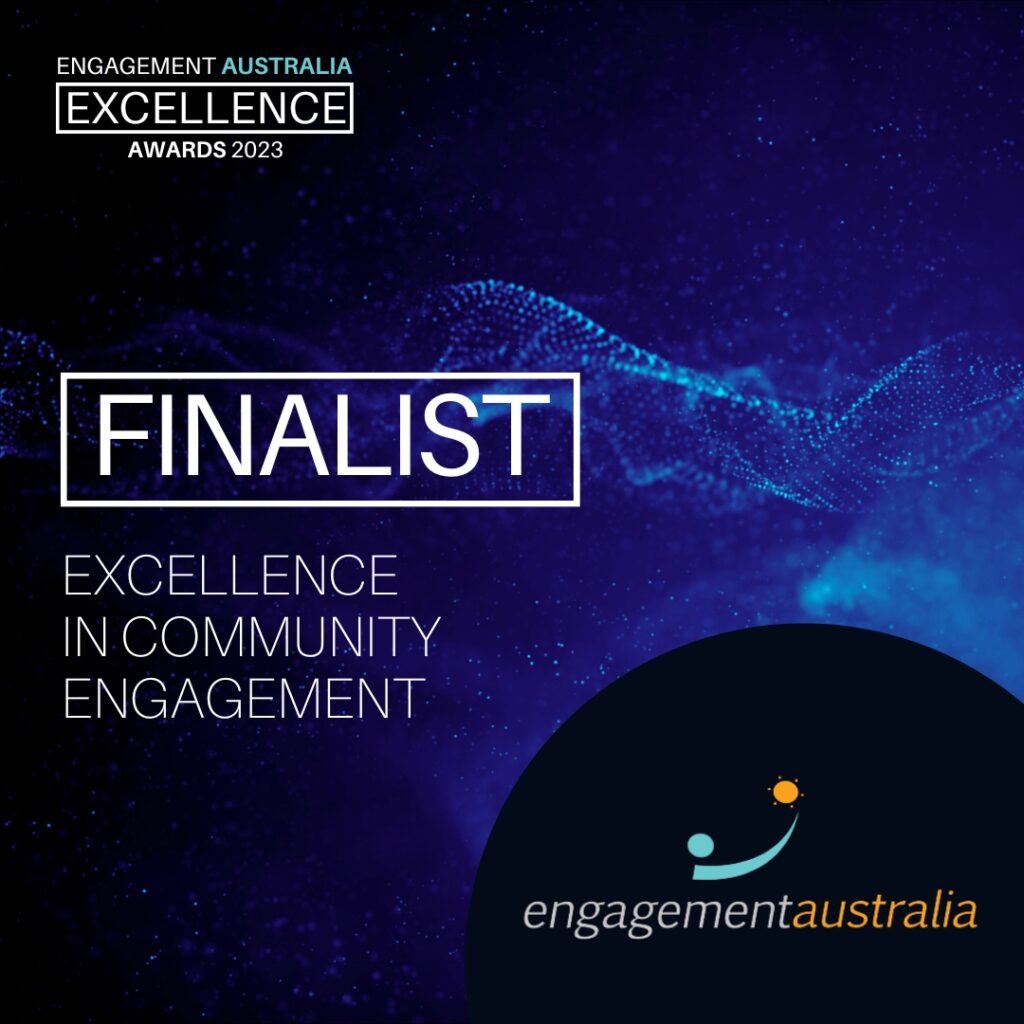
BioEYES Australia, Monash University
BioEYES is an innovative, exciting, hands-on science experience for primary and secondary school students, covering diverse topics including life-cycles, genetics, physiology and ethics. BioEYES captures students’ inherent enthusiasm and excitement for science while opening their minds to future careers in STEM. Aligned to the Australian/Victorian Curricula, BioEYES partners with schools in an easily accessible incursion, with all equipment provided and delivered by our expert educators. BioEYES is regularly booked 12 months in advance, servicing approximately 33 schools and 1500-2000 students annually and has been shown to have numerous benefits including upskilling teachers and inspiring students to pursue science careers.
Community Fellows Program, The University of Melbourne
The Community Fellows Program responds to unmet research needs of small-to-medium sized community organisations addressing social inequities. Selected Fellows are matched with experienced academic mentors; together, they co-design a year-long research project that informs, documents, evaluates, shares and scales their work for the benefit of their organisation and the people they serve. As honorary staff members, Fellows have access to university resources, bespoke cohort-based research training as well modest research funding to undertake their projects. In addition, community organisations are provided with a grant to facilitate time release for Fellows, enabling them to step outside the daily demands of their work.
La Trobe Albury Wodonga and Bradford Shepparton Pathways – lifting educational access and attainment for regional students, La Trobe University
Regional students should have the same opportunity as students in metropolitan areas. Yet the gap between regional and metro Victoria in higher education attainment is stark, and continues to widen. 17.7% of residents in Albury-Wodonga and 14.8% in Shepparton hold a degree (2021 Census), compared with 32.8% of residents in Greater Melbourne.
La Trobe’s Regional Pathway Program, developed with secondary schools in regional communities, is a transformative solution that reduces equity and attainment gaps in tertiary education in regional Victoria. 70% of students who complete the program are on track to attend university – four times higher than the regional
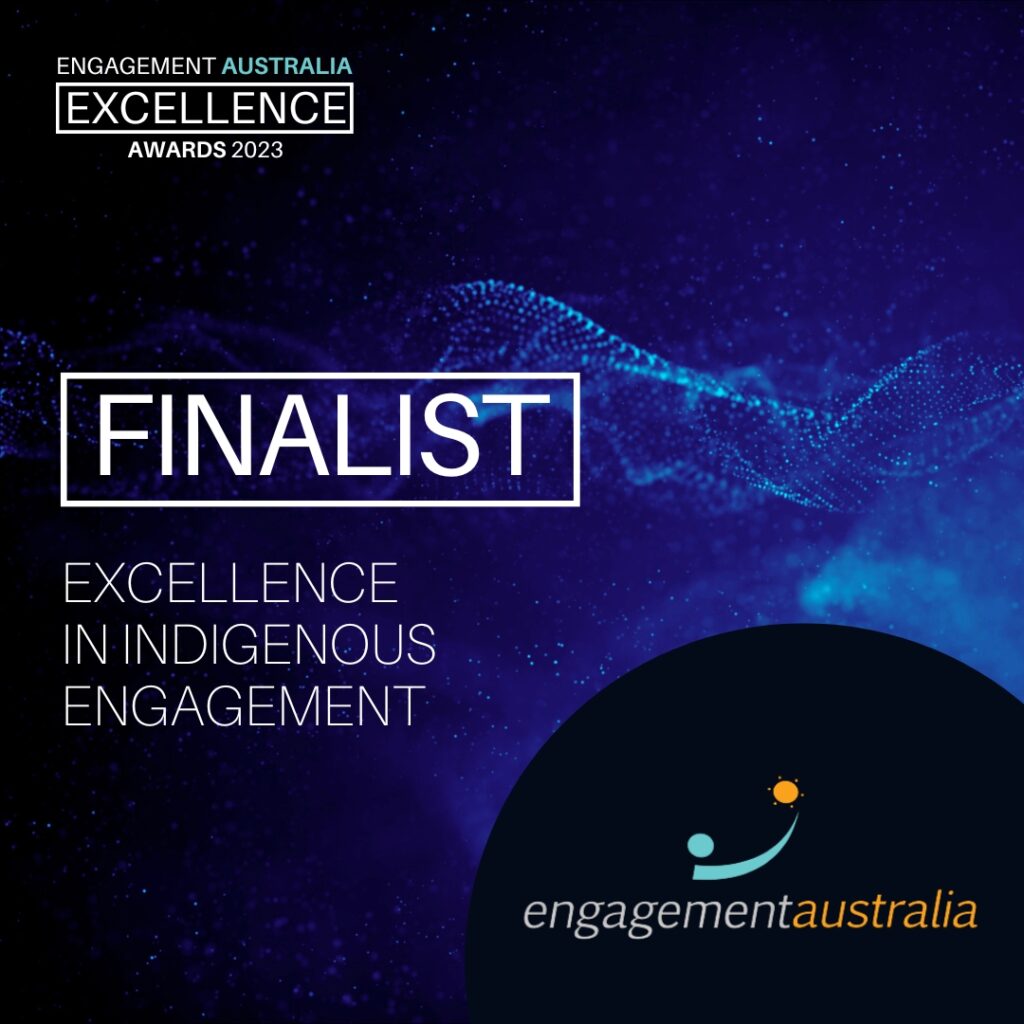
Budj Bim On-Country Learning and Research, The University of Melbourne
This collaborative project is grounded in a rich partnership between Gunditjmara people and The University of Melbourne that is based on two-way learning and knowledge exchange at the Budj Bim Cultural Landscape. The partnership includes a growing program of activities related to on-Country learning and research that supports the Gunditjmara vision of Ngootyoong Gunditj Ngootyoong Mara (Healthy place, healthy people). These initiatives, centred around the ‘Indigenous engagement framework’ of place, philosophy, people, practice and projects, demonstrate excellence and innovation in teaching and research, and take a world-leading approach to in-place engagement and intercultural knowledge exchange with Indigenous peoples.
The Yapatjarrathati Projects, Griffith University
The Yapatjarrathati Projects (meaning ‘to get well’ in Kalkadoon) is a groundbreaking culturally responsive healthcare model that tackles disadvantage in remote Aboriginal and Torres Strait Islander communities. The initiative, led by a Griffith University research team, community elders and multiple health organisations, represents Australia’s first co-designed approach to on-Country screening, diagnosing, and supporting neurodevelopmentally vulnerable children. With Kalkadoon elders and Indigenous healthcare practitioners, the team created the diagnostic ‘Tracking Cube’ that weaves Dreamtime storytelling and art into the healthcare journey so that families can receive evidence-based care locally, from a First Nations worldview.
Yambirrpa School Partnership with University of Melbourne
A partnership between Yambirrpa schools in NE Arnhem Land and the Faculty of Education at the University of Melbourne began in 2011 with a placement program for pre-service teachers with the aim of teacher recruitment to the region. The partnership with the schools and broader community is based on strong and enduring professional and personal relationships that Bern Murphy (MGSE) has led and nurtured over the twelve years. As relationships deepened, other initiatives developed that engaged other faculties and organisations and provided employment in the region, including the production of cultural induction films led by Yolŋu educators.
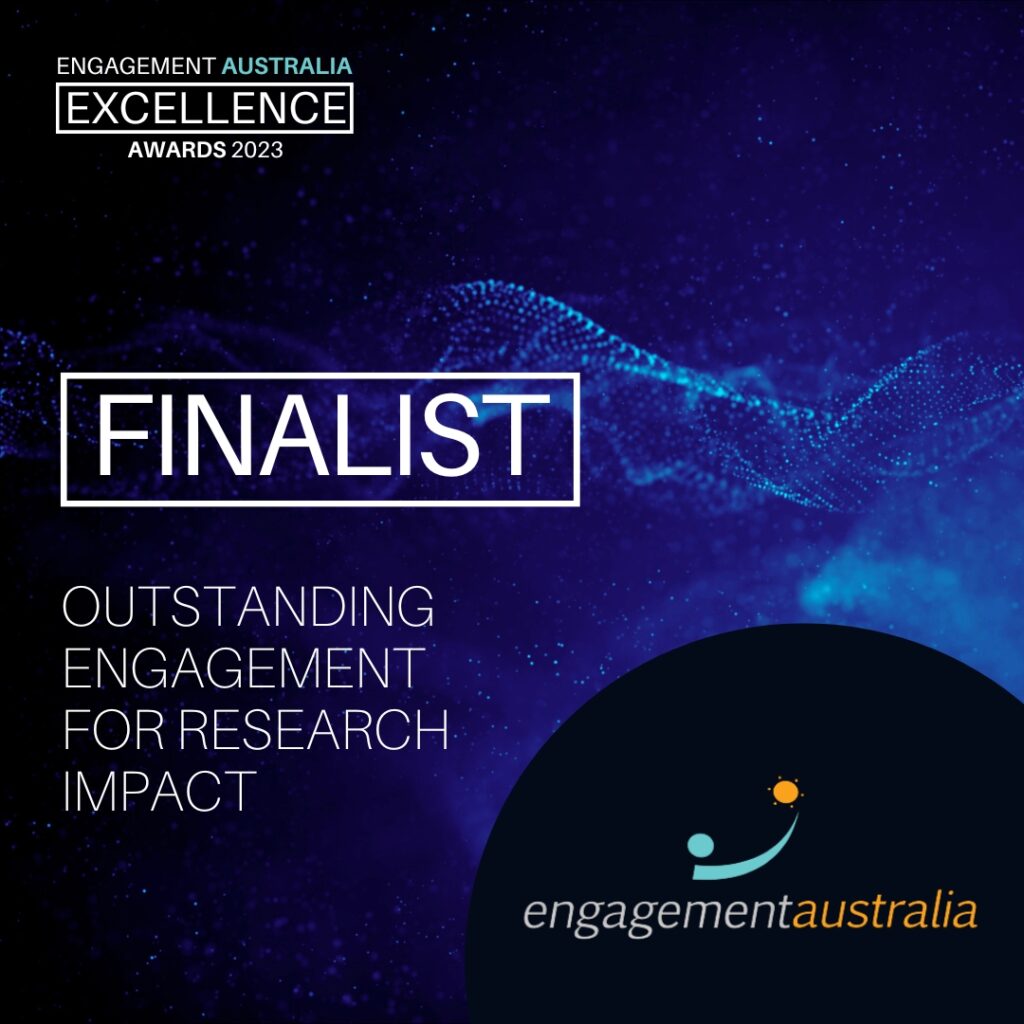
Family Violence Triage in Family Courts: Safety, Efficacy and Benefit, La Trobe University
Parents and children in the family court system are disproportionately burdened by serious or lethal safety risks from domestic violence (DV). La Trobe University’s engagement with the Family Courts of Australia and other partners represents a world first effort in evidence based prevention for high-risk families.
This partnership established an evidence based tool for DV triage in the Family Courts’ Lighthouse Project, supported by a Family Law Amendment to safeguard its use from admissible court evidence (Risk Screening Protections Bill 2020). The partnership continues to study safety enhancement and DV prevention through effective triage in the Courts (ARC LP210100181).
Students with Additional Needs (SWANs)/Abilities Based Learning and Education Support (ABLES), The University of Melbourne
Students with Additional Needs (SWANs)/Abilities Based Learning and Education Support (ABLES) is an ongoing collaborative research partnership between The University of Melbourne and the Victorian Department of Education. The research program began in 2007 and has resulted in the development and implementation of nine assessment instruments that allow teachers to confidently judge the learning progress of students with additional needs and use data to design personalised teaching and learning programs to meet each student’s needs. The instruments are used across Australia, with over 1.2 million assessments conducted to date, supporting students with additional needs to reach their educational potential.
Changing how we do cancer research, UNSW
Development of Rastrum™ – a cutting-edge bioprinter with innovative bioinks and assays for creating three-dimensional (3D) cell cultures for personalised medicine, drug testing and biomedical research – was only possible due to the intimate collaboration between Inventia Life Sciences (ILS), the Australian Centre for NanoMedicine at UNSW and the Children’s Cancer Institute. Delivering both unprecedented speed and sophistication of 3D-cell models, the importance of this technology is demonstrated by a resultant plethora of discoveries reported in the scientific literature, ILS having raised >$12 Million in Australian venture capital funds, and selling printers worldwide to research laboratories and pharmaceutical companies.
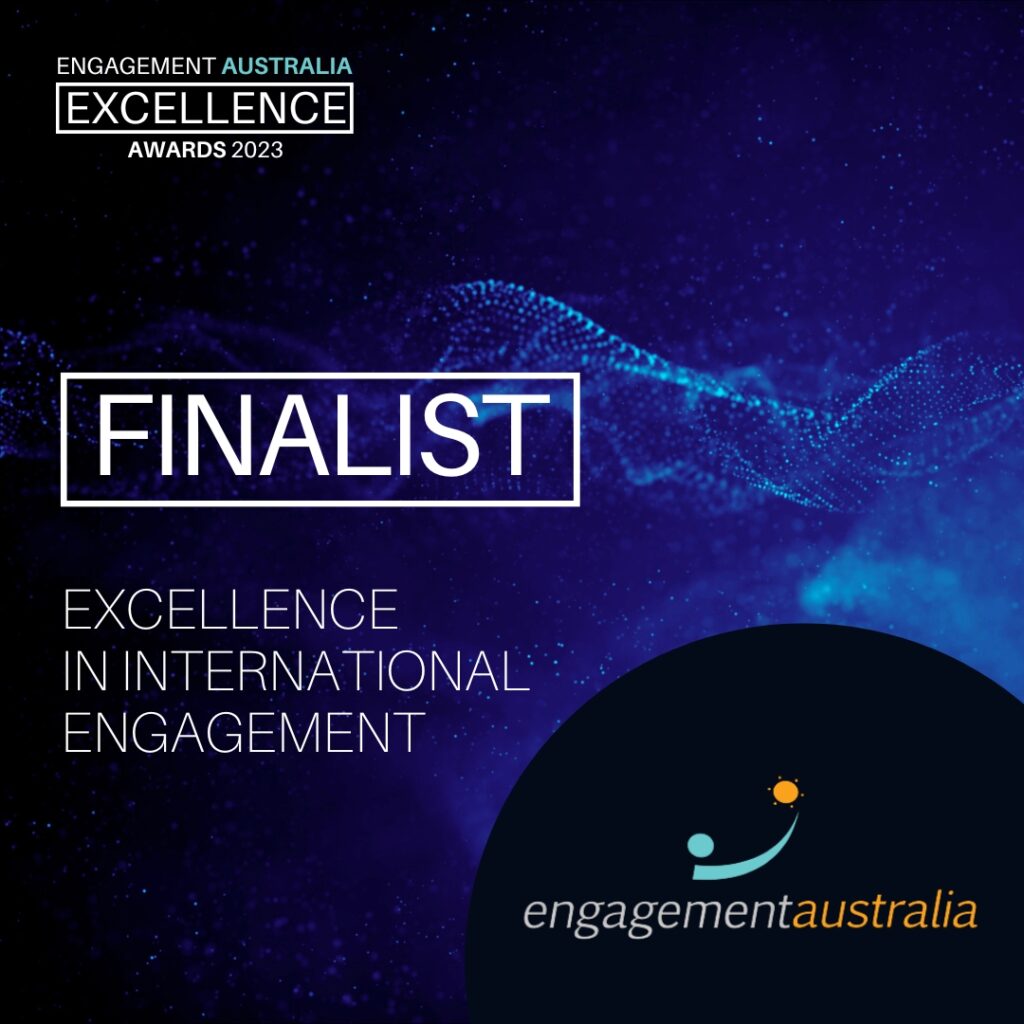
GAPS (Gather Adjust Prepare Sustain) program, Griffith University
The Gather Adjust Prepare and Sustain (GAPS) is a multi-stakeholder program developed by the Commonwealth Games Federation (CGF) and Griffith University for the purpose of enabling sports pathways in some of the world’s least developed countries, promoting positive social change and opportunities to strengthen international relations. Through talent identification assignments, education programs, mentorship initiatives and training camps, the GAPS program offers emerging athletes and coaches access to additional skills, knowledge, and resources that act to remove barriers to participation and international competition. The GAPS program exemplifies inclusivity by promoting women and para-sport athletes in sport.
The Murchison Widefield Array (MWA) Collaboration, Curtin University
The Murchison Widefield Array (MWA) is a significant international research collaboration and astronomy project, led by Curtin University and developed by partner institutions from Australia, New Zealand, Japan, China, India, Canada, and the United States. The MWA radio telescope is based in outback Western Australia on Wajarri Yamaji country, and for the last decade has been taking science observations for hundreds of astronomers across the globe. The MWA is the official precursor instrument to the EUR2Billion low-frequency SKA project, the largest radio telescope in the world, which will revolutionise our understanding of the Universe and the laws of fundamental physics.
Partnership for Global Impact: An international multidisciplinary, evidence-based, consumer-centric Network for better health, Monash Centre for Health Research and Implementation
The Polycystic Ovary Syndrome (PCOS) Network has delivered unprecedented collaboration, successive NHMRC approved International Evidence-based Guidelines translation and shared research priorities and programs. Extensive international collaboration encompasses 39 societies, six continents and 100+ multidisciplinary and lived-experience experts, amplifying patient voices through-out and reaching 196 countries to transform approaches to PCOS diagnosis and management. Multilingual translation provides equitable access to cutting-edge, digital, cost-free resources for healthcare professionals and women. As a vanguard of innovation, inclusivity, and excellence the Network and outputs merit recognition for advancing care for the 12% of women affected by this neglected condition.
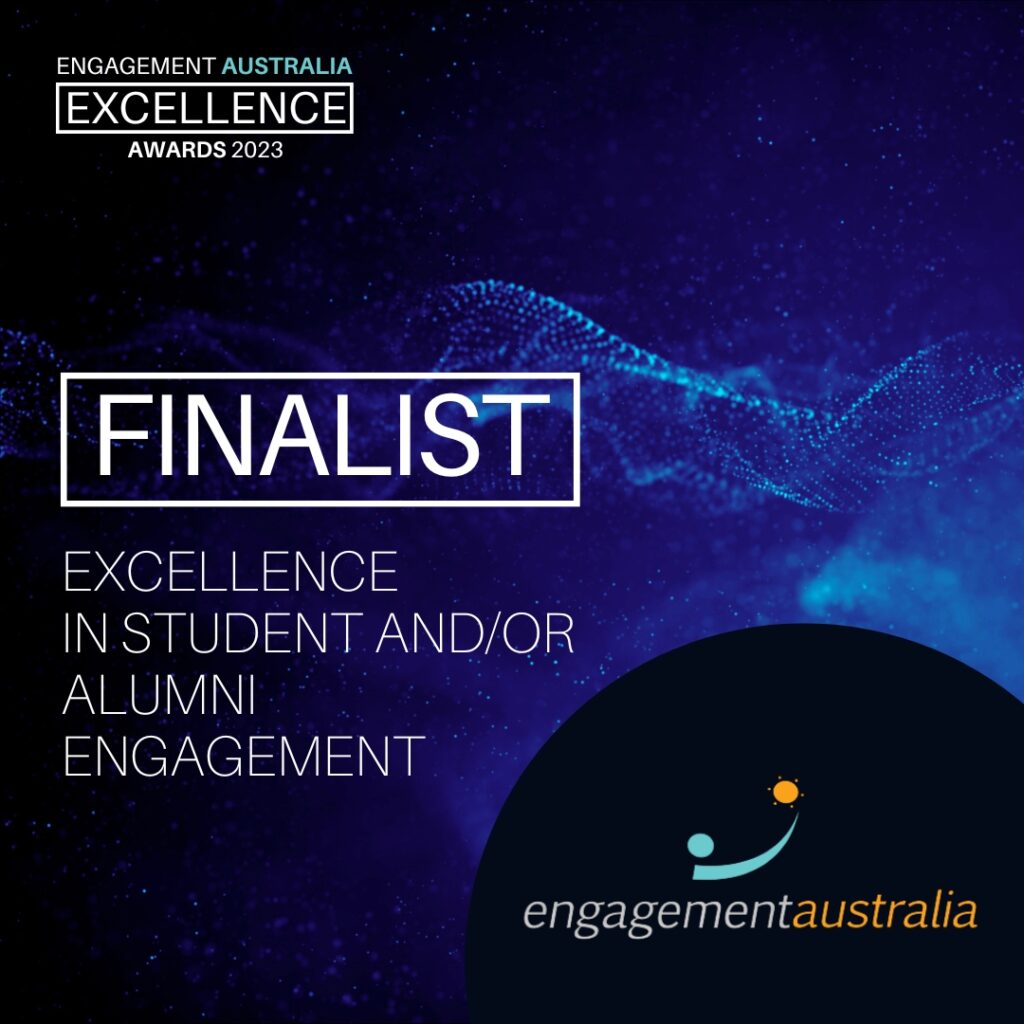
MBA for Life, Griffith University
MBA for Life is a lifelong engagement initiative for Griffith MBA students and alumni. It is the heart of the world’s leading values-centred MBA, fostering unique and impactful partnerships to benefit the professional & personal lives of participants. The program extends alumni engagement well beyond graduation ‘for life’ through the co-design of learning initiatives. MBA for Life not only serves to benefit alumni but has enhanced the university experience for students through industry-engaged projects. With a global MBA alumni network of over 4000, MBA for Life has actively engaged with over 2000 thought leaders representing over 1500 organisations since 2021
Heron Island Alumni Experience, The University of Queensland
Heron Island Research Station has been a hub for groundbreaking marine science research and education for more than 70 years, offering researchers, students and teachers unrivalled access to one of the world’s most biodiverse marine ecosystems.
Through a 3-day alumni trip we expanded this reach by providing an immersive experience for alumni and guests increasing visibility of this important work. Families, young alumni and retirees participated with exclusive access to a remote, working research station.
The reach was amplified through social and digital media, including a QWeekend feature, to highlight the world class research and facilities available on Heron.
Flinders University Student-Alumni Mentoring Program (StAMP), Flinders University
Launched in 2020, the Flinders University Student-Alumni Mentoring Program (StAMP) harnesses the wisdom of its alumni and the power of mentoring to set its students up for success. We do this through matching Bachelor of Arts (BA) and Creative Arts (BCA) alumni with final year BCA and BA students. Students receive invaluable guidance as they transition from study to paid employment. StAMP mentors help students develop professional networks, clarify their career aspirations and gain confidence. Starting as a pilot in 2020, an expanded StAMP is now in its fourth year.
UTS Humanitarian Scholarship Program, University of Technology Sydney
The UTS Humanitarian Scholarship Program assists students from refugee and asylum seeker backgrounds in accessing and succeeding at university. It provides tuition, specialized academic support, and career initiatives tailored to their unique needs. The program aims to foster a sense of belonging, enabling students to pursue their education and career goals despite challenges. Community and industry partners play a crucial role in empowering students, making the program successful. Its innovation lies in a targeted approach, collaborative partnerships, and comprehensive support, fostering positive change within the institution and its networks.
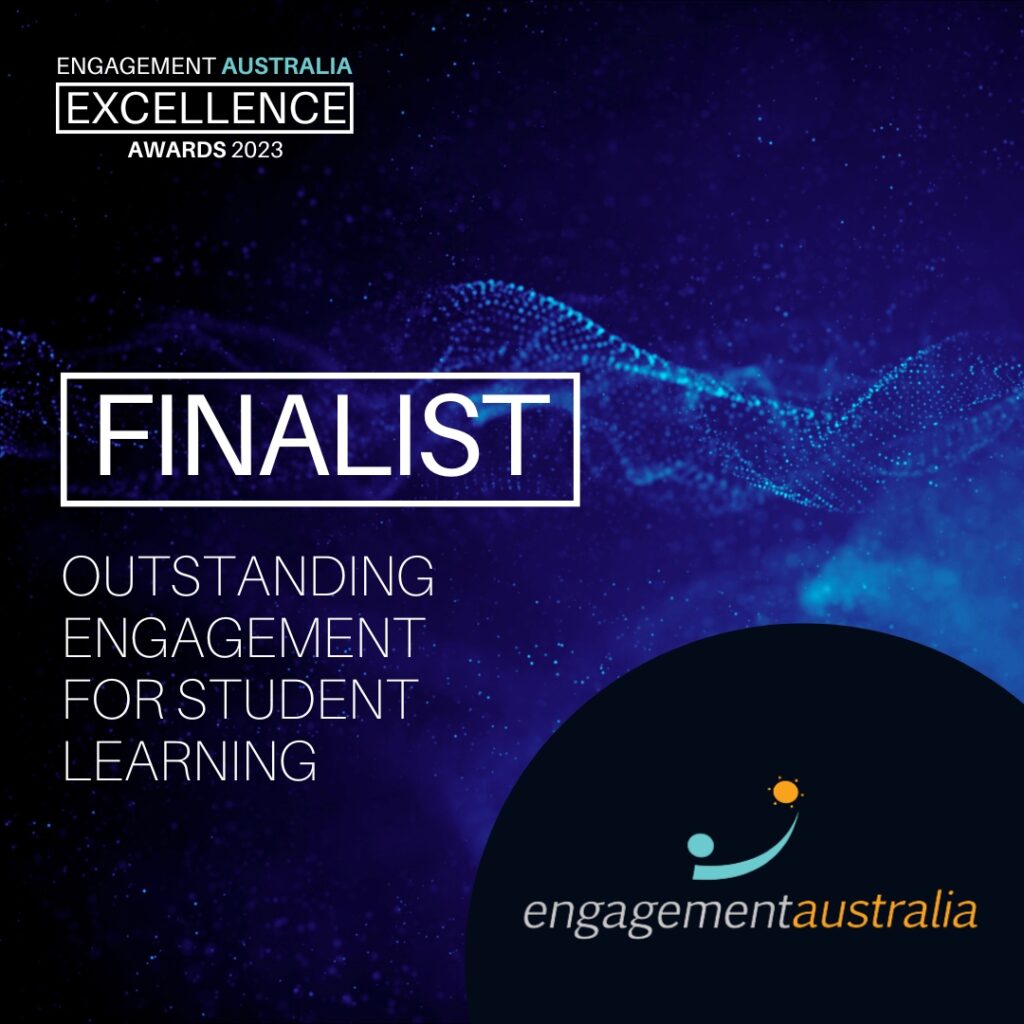
Melbourne Law School Clinics Program, The University of Melbourne
Melbourne Law School Clinics program (‘Clinics Program’) offers students a unique opportunity to enrich their legal knowledge and develop practical skills within a public interest context. Students work at and with partner organisations, supervised and mentored while directly assisting clients. Complemented by seminars exploring critical perspectives on law, ethical obligations and professional identity, the Clinics Program provides a transformative educational experience, nurturing future public interest lawyers and simultaneously strengthening community organisations’ capacity to assist clients. The Clinics Program extends beyond traditional law curricula, fostering a generation of socially-conscious legal professionals, testimony to the Clinics Program’s enduring impact.
La Trobe Eye Clinic, La Trobe University
The La Trobe Eye Clinic, a student-led university clinic, was established to create a real-world student learning opportunity and address shortages in clinical placement opportunities for orthoptic students and exposure to paediatric orthoptics. In partnership with the Royal Children’s Hospital (RCH), a collaboration involving the co-management of paediatric patients was established and later expanded to include referral pathways for maternal and child health (MCH) services. The university clinic now offers 560 placement days per year to students, and since implementation has provided over 2000 patient consultations with 680 patients co-managed with the RCH and 300 children referred by MCH
Innovation Practice Program, The University of Melbourne
The Innovation Practice Program (IPP) leverages sponsor relationships to deliver previously unachievable teaching outcomes, and leverages student participation to create opportunities and outcomes that previously eluded sponsors and researchers.
The IPP Spark program gives students critical mindsets and professional skills by using a sponsor’s innovation challenge as a ‘trojan horse’ to deliver professional skills education. A post-graduation survey shows alumni retain and use these ways of thinking and acting. Since 2017, the program has delivered 369 projects with 148 industry, government and community sector partners. Its Ignite program increases value delivery and further increases student skills.
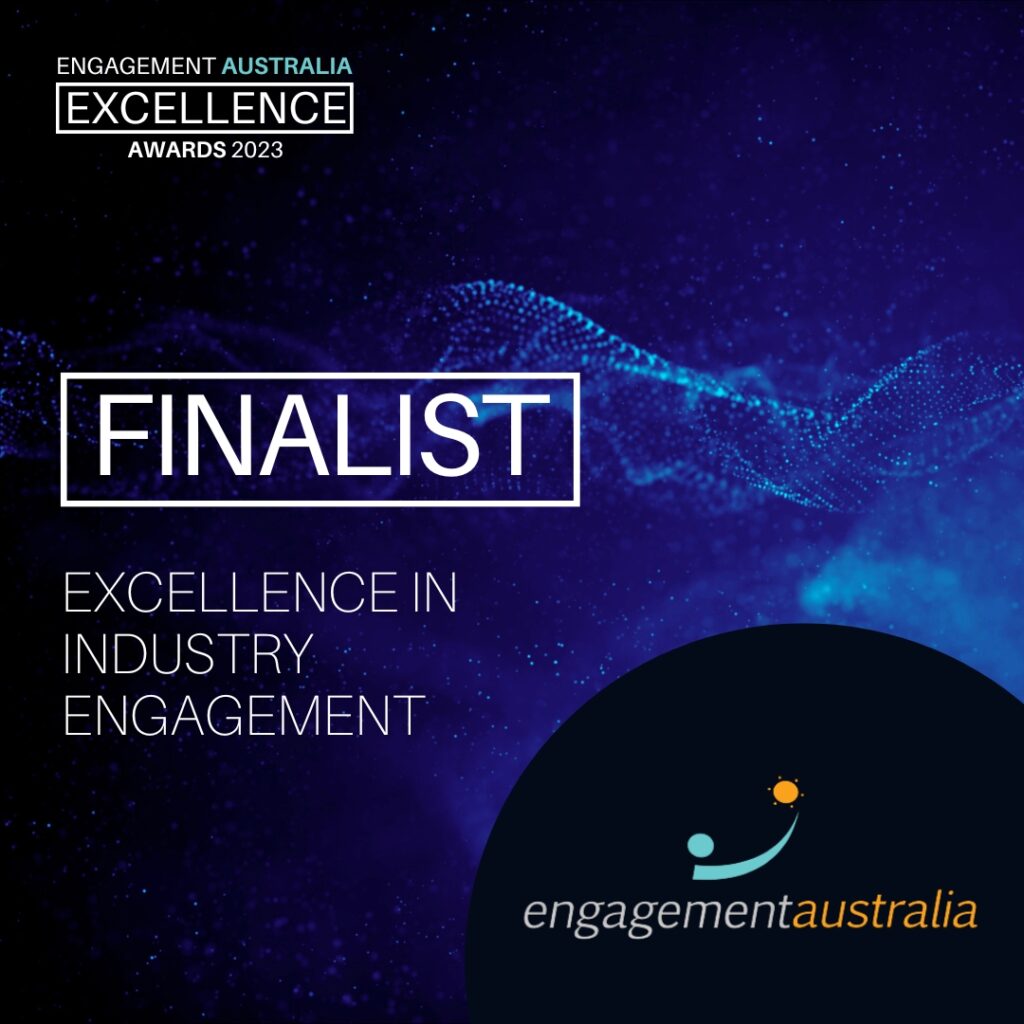
Innovation Central Perth, Curtin University
Innovation Central Perth (ICP) has pioneered a project-based internship model, connecting Curtin University’s best and brightest students, with industry partners to develop innovative solutions to real business challenges. The model (ICP 2.0) introduced in 2021, was designed to achieve two purposes; increase partner engagement and institutionalise industry engagement.
With over 100 projects delivered in 2022 for partners across all sectors and business sizes, ICP is growing rapidly. Industry engagements have provided $1M income, shared through academics, students, and investments. ICP 2.0 has successfully established itself as a central hub for businesses desiring a connection with tertiary education institutions.
Centre for Humanitarian Leadership, Deakin University
The Centre for Humanitarian Leadership (CHL) is a partnership between Deakin University and Save the Children Australia (SCA) that combines evidence and practice for better humanitarian action. CHL leads and influences change within the humanitarian system through critical analysis, transformational and disruptive education and research, and meaningful contributions to policy and practice. CHL has graduated 717 students in their Graduate Certificate programmes and 96 in the new Crisis Leadership Program (CLP) suite of short courses. CHL promotes transformation in the humanitarian sector through robust research publications, a working paper series, online and in-person events, and a biennial conference.
UniSA Internships Speed Networking, University of South Australia
UniSA Business’ innovative Industry to Student Speed-Networking Events have increased the number of student-sourced placements, improved student networking skills, enhanced student employability, and strengthened talent pipelines for industry partners.
Since program commencement in 2019, student-sourced placements have increased from 26% to 70% through strengthening student networking and industry engagement skills. These are directly transferable to post-university employment, with 25% of students gaining employment with their host organisation, 52% being recommended for employment elsewhere, and 45% having an ongoing mentoring relationship.
The program is championed across the tertiary sector as a best practice model for engaging industry in student placements.
Institute for Infrastructure in Society (I2S): Next Generation Engagement Program, Australian National University
The ANU I2S Next Generation Engagement Program (NextGen) is a pioneering, co-designed, industry-engaged research initiative delivering social and policy science insights to improve societal outcomes of major infrastructure investment, planning and delivery. I2S and our industry partners co-create and implement evidence-based tools for community engagement quality assurance and social risk management. Industry applies our research to inform community engagement policy and practice, organisational culture, and interactions with impacted communities. A world first, I2S’ contributions are raising the profile of social issues and impacts and equipping professionals to more systematically address these concerns to generate societal benefit from Australia’s Big Build.
Bringing Life-Saving Medications to the Clinic, Monash University
The development of new cancer drugs is commonly a one-way interaction, with pharma companies designing clinical trials which are then performed by clinicians on the ground. The story of zanubrutinib is different. The two-way iterative engagement between BeiGene and Prof Tam since their initial meeting in July 2013 resulted in a series of innovative clinical trial designs which led to rapid approval of zanubrutinib in 2021 for treatment of multiple blood cancers. Zanubrutinib is the best BTK inhibitor (a class of life-saving drugs) developed to date, and the story of its evolution is an exemplary example of industry-clinician engagement.
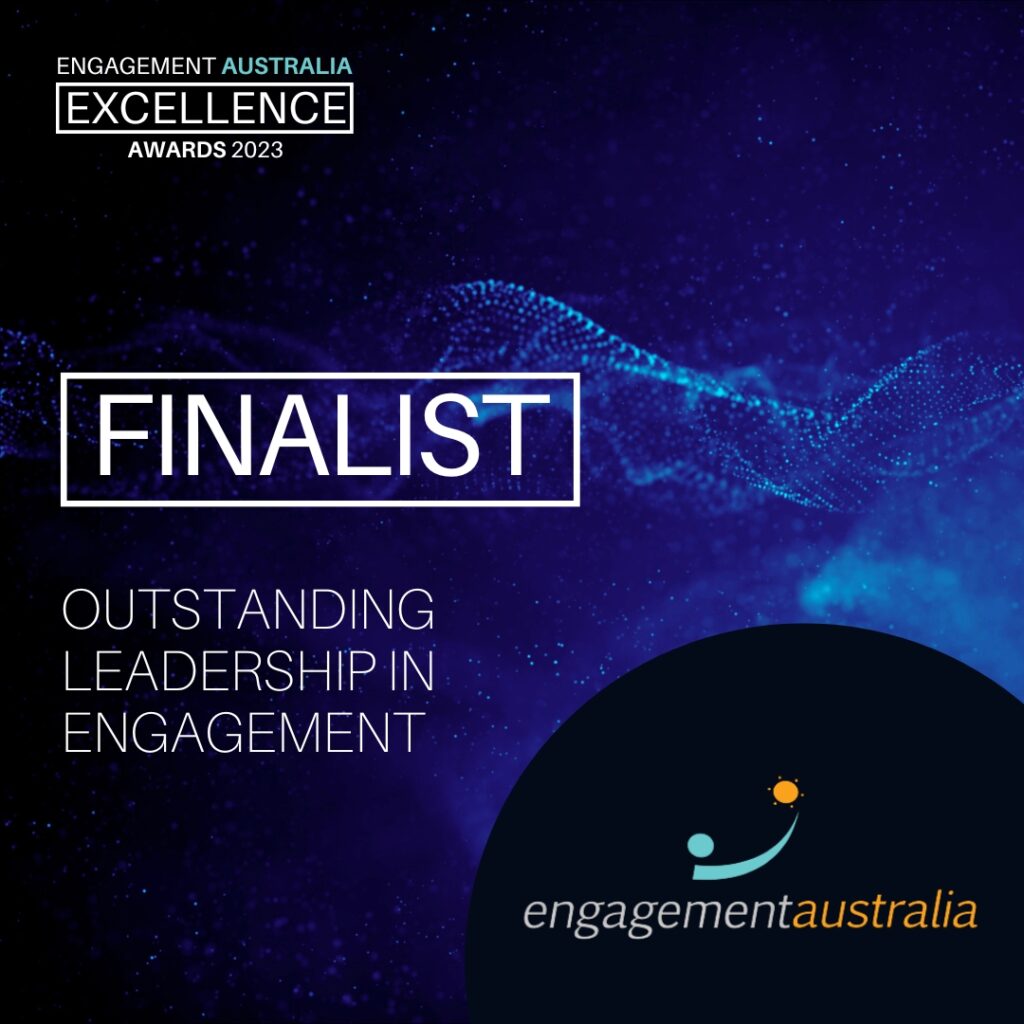
Professor Paulo de Souza for his work supporting Australia’s emerging space industry, Griffith University.
Professor Paulo de Souza has forged transformative partnerships supporting Australia’s emerging space industry. Over the past four years, he has led the groundbreaking partnership between Gilmour Space Technologies and Griffith University. This partnership has focused on satellite development, capability building and the momentous launch of Australia’s first rocket and satellites from Queensland. Broader contributions include the STEM Program About Space Exploration and bringing First Nations perspectives to space development. In June 2023, Professor de Souza was recognised as Mentor of the Year in the Australian Space Awards. His visionary leadership has been instrumental in propelling Australia’s space industry forward.
Assoc. Prof. Chris Maylea for his work in mental health advocacy, La Trobe University.
Associate Professor Chris Maylea’s leadership to improve mental health advocacy has led to legislative change and the co-design of new service delivery models for mental health advocacy.
Through a longstanding partnership with Victoria Legal Aid (VLA), Maylea has emerged as a leader in the sector. Maylea is a role model, inspiring others with his dedication to improving mental health advocacy.
His work has earned high regard and respect and demonstrated by the impact of his research and appointments to government panels and advisory boards. His leadership, commitment to mentoring and developing others, is fostering the next generation of leaders.
Catherine Cabacis Partnerships across Strategy, International and Engagement, RMIT
Catherine Cabacis is a beacon of collaborative excellence at RMIT, whose tireless efforts have fortified global industry and alumni networks. Her outstanding leadership manifests in strategic, sustainable and ever-growing partnerships. Catherine exemplifies collaboration in action, inspiring her peers and earning well-deserved respect as a leader in industry engagement. Her efforts have been recognised in multiple university awards, having established five school industry partners (Coles, ANL, IBM, UniSuper and KPMG), and recruited over 100 industry representatives to the College of Business and Law in Australia, Vietnam and Singapore. Her continued dedication to fostering strategic alliances positions RMIT as a leader in engagement, making Catherine a highly valued asset to the institution.
